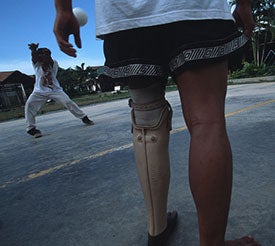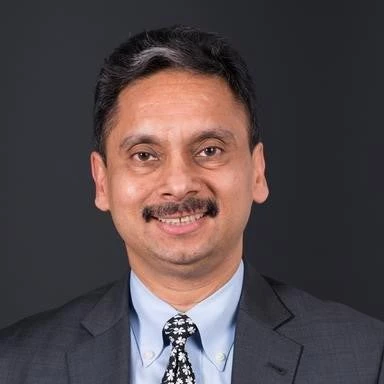 Around 1 billion people worldwide are estimated to live with some form of disability, and for 185 million of those, they are severe enough that they have serious difficulty functioning.
Around 1 billion people worldwide are estimated to live with some form of disability, and for 185 million of those, they are severe enough that they have serious difficulty functioning.
As the World Bank renews its commitment to doing more to support people with disabilities, I thought I’d take a moment to reflect on the evolution of my own thinking on disability. When I was in my teens I thought of disability in black and white terms – there were people with disabilities and there were others, without.
As I grew up in a small town (by Indian standards) in northern India, my perspectives began to evolve, both through routine observation of the numerous failings of people we see as “able”, and through highly inspiring interactions with people who had so called “disabilities”. I must say I am in a very different place today than I was as a child.
Over the years, I have seen different people exhibit different strengths and weaknesses, abilities and disabilities. I have seen friends and colleagues with “able” minds and bodies go through all sorts of trials and tribulations, suffer debilitating bouts of stress, anxiety, uncertainty, sometimes unable to cope with the burden of day to day routines.
I have seen some of the most inspiring, courageous acts by people with so-called disabilities, and have learnt so much about how to live life from them. As the World Report on Disability points out, most of us will experience disability at some point in our lives – whether temporary or permanent.
Every summer my family would go to our ancestral village for two months, where I would spend time with about a dozen cousins, some living in the village, and others, like me and my brother, visiting from cities.
Among these first cousins was Rana, who had had severe physical and significant developmental disabilities, but who I always remember as the most affectionate of all my cousins, expressing the purest joy when we arrived at the village.
We played cricket every day in an open field just outside the village, vying with each other for recognition as the best team, or top batsman or bowler etc. We would get fairly competitive, trying to sneak some silly advantage over others, often arguing if we were “run out” or not, or whether a catch was legitimate, or if it we had bowled a “no ball”.
And without consciously thinking about it as unusual, whenever there was a heated dispute, we would always ask Rana to give the final verdict, regardless of which team he was on. Whatever Rana ruled was the final word, and we always accepted it, because we all just assumed that he would be just and fair and impartial. Yes, we may have had better cricket playing abilities, but we always relied on Rana’s abilities to tell us what was fair, which was often very hard for us to see or acknowledge.
Almost a decade later, when I was in my early twenties, a close friend had a serious spinal injury in a motor-biking accident and has been paralyzed from the waist down ever since. During these years, he has set up and grown a thriving business, given employment to hundreds of people, started voluntary organizations, and remained among the funniest and liveliest people I know. He has been an inspiration on so many fronts.
As I look around now, I believe we are all a mixed bag – while we are very good at some things, and ok at others, there are yet other things we are simply not good at. While I don’t, for a minute, underestimate the huge challenges people with disabilities have to face and overcome on a daily basis, I believe each one of them also has abilities that I would aspire to have.
So while we commit ourselves to do more to promote inclusion of and support to people with disabilities, let us also make sure that they have the opportunity to use their respective strengths and abilities to not only excel at what they do, but also help others in their communities --and beyond.
(Edited to add):
On December 3, 2014 --International Day of Persons with Disabilities--, Maninder Gill spoke at the launch event of the UK's Department for International Development (DFID) Disability Framework. Read his remarks here.


Join the Conversation